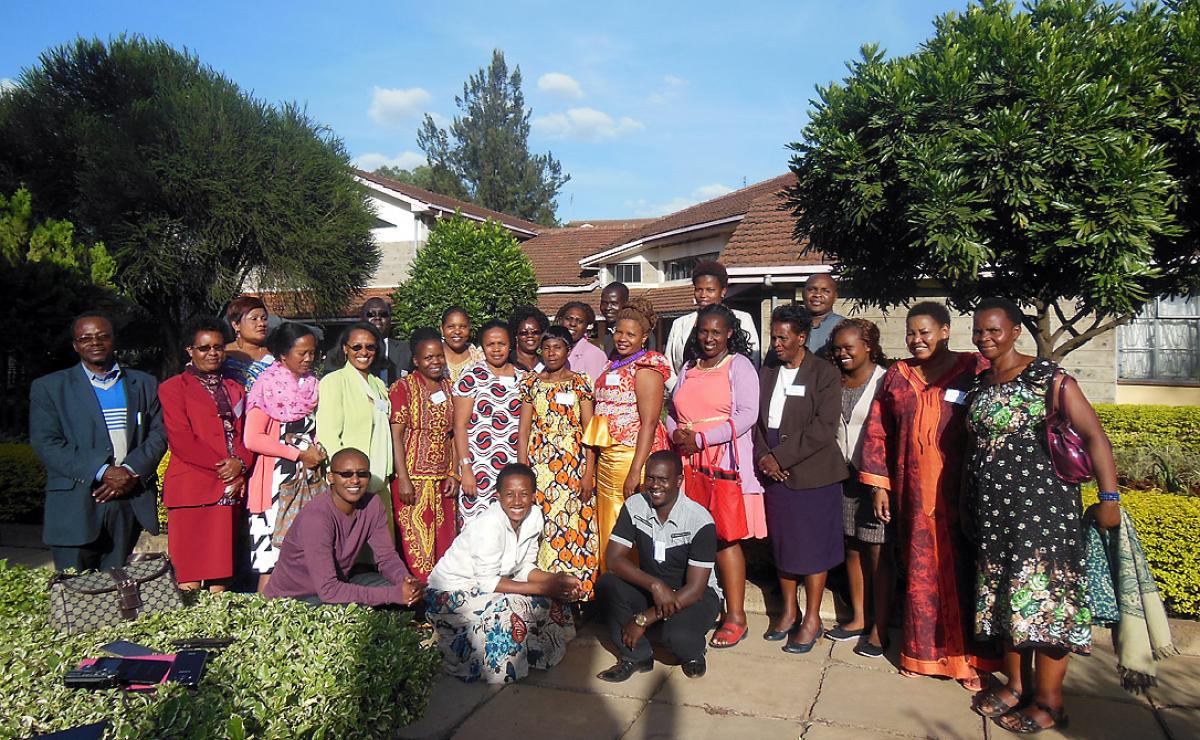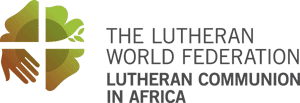FGM is life threatening – end it now

Lutheran churches support new strategy to fight FGM
(LWI) – “End it now” is the title of the graphic, chilling but real video. In the final scene a five-year old girl is wailing helplessly as her guardian “mothers and aunts” firmly pin her onto a floor mat. The role of the women is to ensure she goes through the important rite of a girl’s passage into this community—female genital mutilation (FGM) or the women’s cut. The chief circumciser uses a razor blade to do the “cut” and then stitches up the whimpering child, who is subsequently dressed in a loose garment and left to rest on a thin mattress.
“I feel that I have failed all the girls and women who have suffered this terrible experience because I was not aware of what was going on,” said Rev. Judith Mbabazi from Uganda, one of the coordinators of women’s desks from churches of the Lutheran Communion in Central and Eastern Africa (LUCCEA), when she watched the video clip for the first time.
The video was developed to advocate against FGM was shown at a LUCCEA workshop, held 22-28 February in Nairobi, Kenya. Ms Miriam Daniel Zere from the Evangelical Lutheran Church of Eritrea could relate to what she had watched. The practice is widespread in her country, and nearly 90 percent of young women and children are mutilated in this way. “It is very common in my country. I was a nurse and midwife for many years and I attended to many women who had gone through it,” she said.
More than 200 million women and girls
More than 200 million girls and women today have undergone FGM in 30 countries across Africa, the Middle East and Asia, according to the World Health Organization. The practice, which includes procedures that intentionally alter or cause injury to the female genital organs for non-medical reasons, has no health benefits for girls and women, and is a violation of their human rights.
FGM procedures can cause severe bleeding and urinary problems, and later infections, as well as complications in childbirth and increased risk of newborn deaths.
In Kenya, where the practice is outlawed, “it is still practiced by all the 42 ethnic groups except three,” noted Ms Judith Nyaata of the Evangelical Lutheran Church in Kenya. “Sometimes women who escaped the practice in childhood are cut just before giving birth after midwives realize that they had not gone through it,” she added.
Solidarity with victims
FGM prevalence in the East and Central African region varies from country to country. Among those represented at the workshop, Eritrea has the highest rate at 89%; Ethiopia, 74%; Kenya, 27%; Tanzania, 15%; Uganda, 1%; while Madagascar and Rwanda are below one percent. Participants also came from the Democratic Republic of Congo.
Madagascar has no indigenous FGM practices or similar rites for girls. “This is the first time I have seen what it involves,” said Ms Totomare Femanjafy of the Malagasy Lutheran Church.
A new approach against FGM
The main objective of the training-of-trainers workshop was to move away from the decades-old approach of awareness raising by going around the villages pleading with the mothers, girls themselves and community leaders to stop the practice without graphically showing the negative effects it has on women’s lives.
“The drive now is toward adopting a new strategy of engaging the entire community to analyze the problem in its totality and see how it’s connected to things that previously seemed unrelated,” said Dr Grace Okong’o, one of the facilitators. “This will help churches and communities to develop concrete action plans to stop the practice”.
Okong’o, a gender expert accompanied by a team from the Hope Foundation for African Women, introduced participants to strategies on how to engage with communities to discuss and act on issues affecting them such as FGM.
LWF advocacy
The Evangelical Lutheran Church in Bavaria supported the training of trainers workshop which was attended by 30 participants from nine countries. FGM is one of the human rights advocacy issues for The Lutheran World Federation (LWF) through its regional and global desks, including the Women in Church and Society program.
The women’s desk coordinators declared their solidarity with women globally who have suffered grievous harm as a result of FGM. They pledged to share the workshop’s action plan with the leadership of LUCCEA, which includes eight LWF member churches and the not yet-LWF affiliated Ugandan church.
Afram Pete, regional coordinator of the African Lutheran Communication and Information Network (ALCINET) contributed this article.
.
